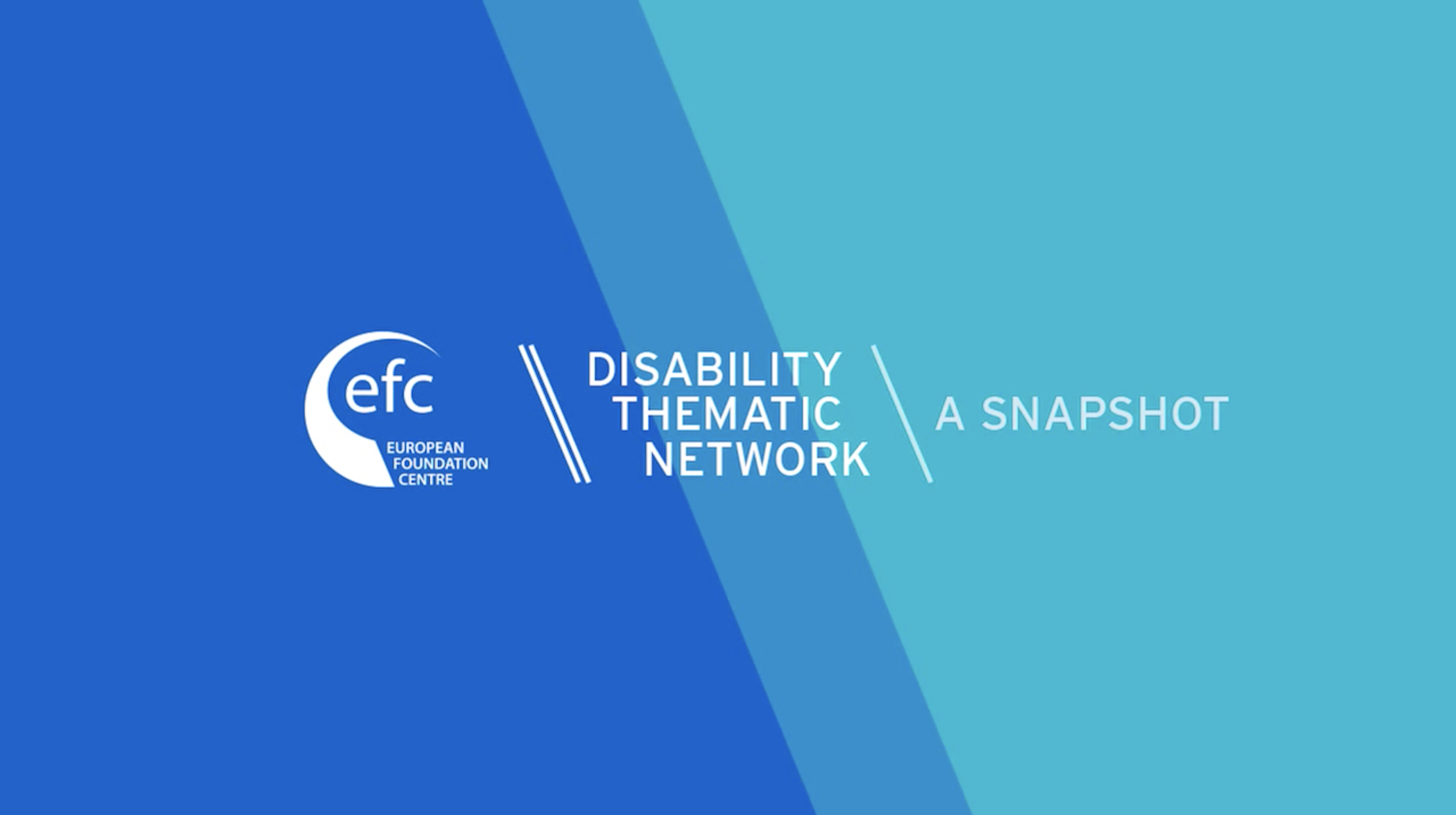Disability Thematic Network
This network serves as an open forum for philanthropic organisations to exchange, learn and connect about any issue related to disability with an eye to mainstreaming disability within their work and programmes.
Focus areas
- Building inclusive communities: Sharing knowledge and good practices on innovative and scalable solutions; deinstitutionalisation; inclusive housing; independent living
- Enabling social equality and justice: Mainstreaming disability with other priorities in philanthropic work; UN CRPD implementation; disability as a human right; training for legal operators; employment and protection from austerity; inclusive education; gender and other multiple discriminations
- Empowering through access to leisure and culture: Using culture as a tool for active participation in society; accessible tourism; access to sport
Activities
- Creating unique and innovative models of collaboration: The DTN is implementing Disability Hub Europe, a multi-stakeholder engagement initiative aimed at building a reference space/platform for best practice exchange, dissemination, mutual learning and raising awareness of the binomial Disability and Sustainability. The Hub is a continuation of AGORA+D: A platform established in the framework of the European Network for Corporate Social Responsibility and Disability. The League of Historical and Accessible Cities (LHAC), which emerged from the DTN, has created accessible tourist routes in 6 European cities and promotes an innovative model of collaboration aimed at solving the issue of protecting heritage and ensuring accessibility for all.
- Identifying and disseminating the most innovative practices worldwide: The Zero Project – An annual project run by the ESSL Foundation which monitors the implementation of the UN Convention on the Rights of People with Disabilities worldwide.
- Building capacity to make sure the UN CRPD is well applied and understood on the ground: Breathing life and vigour into the application of the Convention; making a distinctive contribution; mobilising the foundation sector to play a catalytic role to ensure that European governments and other relevant stakeholders commit to and support both ratification and implementation of the Convention; and organising seminars to train legal professionals on the UN CRPD in collaboration with the Academy of European Law (ERA) and the European Disability Forum (EDF).
- Providing the sector with data through studies and publications
- “Nothing about us without us”: DTN works to connect disability funders to Brussels-based European umbrella organisations and policymakers from European Institutions. DTN’s annual meeting is organised in autumn in Brussels. Sessions are held with one of the other Philea networks to inspire others to incorporate a disability inclusion approach into their programmes.
- Organising sessions at the EFC’s AGA and Conference
Network background
Since the mid-1990s, Philea member Fundación ONCE has worked with the Philea on an array of projects and programmes revolving around the area of disabilities. The DTN emerged from this engagement and has become more and more active over the years, especially after the UN Convention on the Rights of Persons with Disabilities entered into force on 3 May 2008. In 2009 the European Consortium of Foundations on Human Rights and Disabilities was created under the DTN to encourage ratification of the Convention. The work of the Consortium has now been merged into the overall activities of the DTN. The network’s members have also increased their engagement on a European level with their input into the Disability Policy Agenda – collaborating with an array of stakeholders – and the DTN has focused more on incubating philanthropic organisations’ pilot projects that can be scaled up or replicated.
Relationship with the SDGs
Understanding European philanthropy, and how its work relates to the Sustainable Development Goals, is essential when it comes to finding ways of leveraging existing and potential areas of synergy.
The work of the Philea’s Thematic Networks cover the entire range of the 17 UN Sustainable Development Goals (even if they don’t always refer to them explicitly), which are a key part of the 2030 Agenda for Sustainable Development. The work of the Disability Thematic Network touches upon the following SDGs:
- Good Health and Well-Being
- Quality Education
- Decent Work and Economic Growth
- Reduced Inequalities
- Sustainable Cities and Communities
Steering Committee (Chair, Essl Foundation)
Contacts


